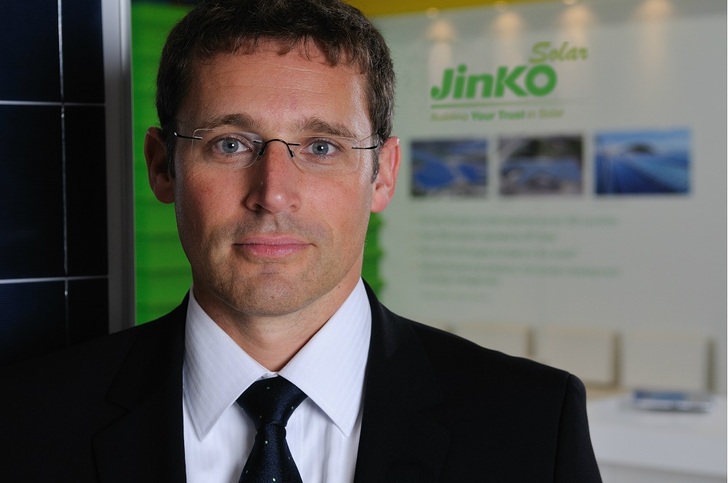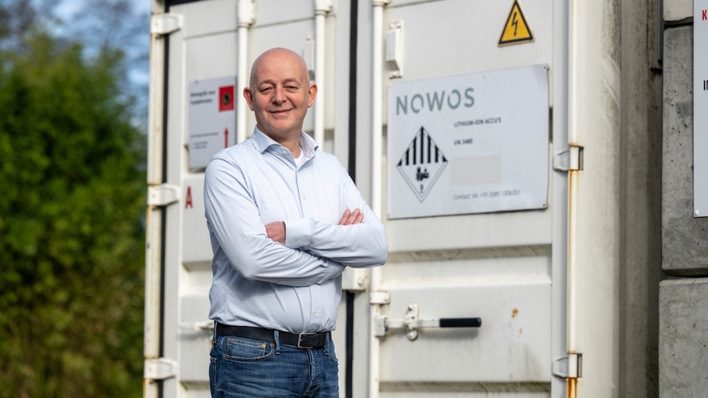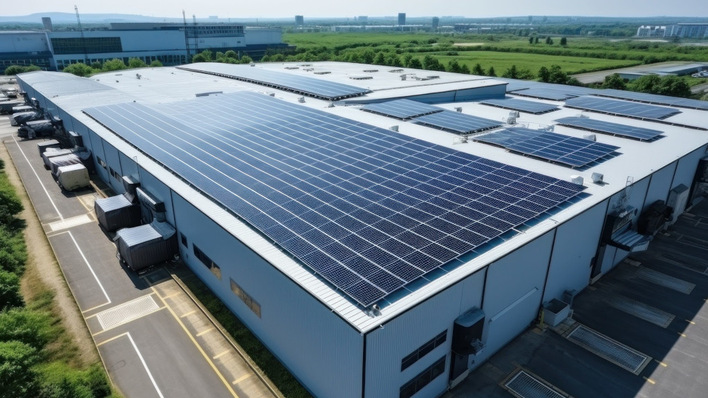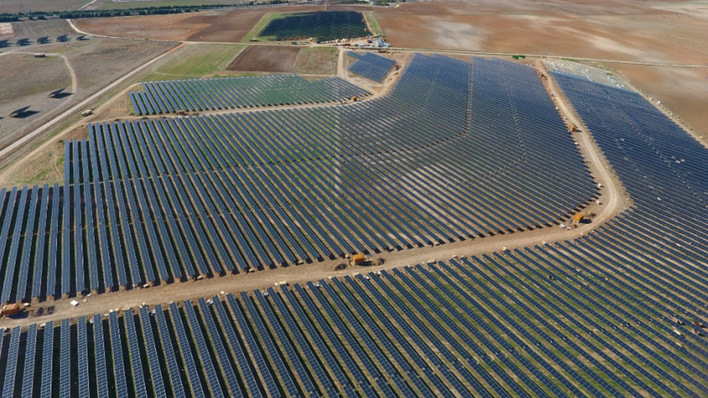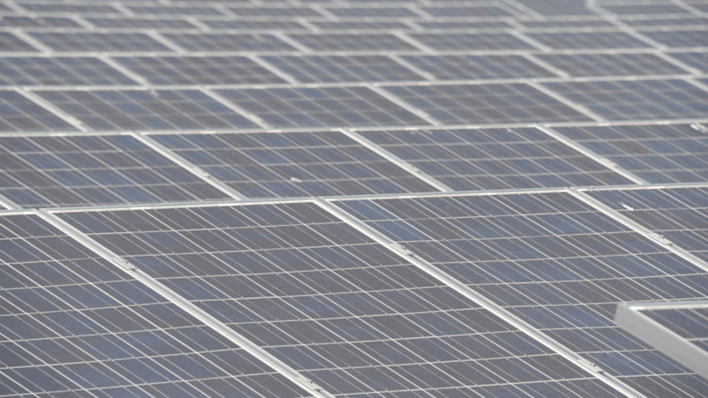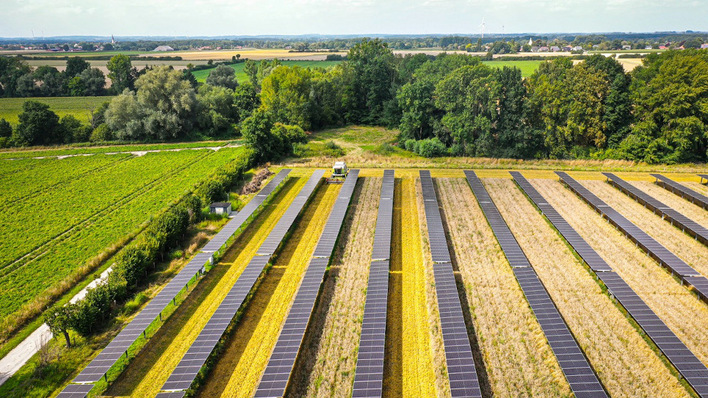Spain and Portugal offer lots of sunshine, but have not been ranked within the top ten PV markets in Europe last year. Especially Spain got negative headlines because of retroactive taxation and financial charges of solar self-consumption. How do you see the business opportunities for that region?
Frank Niendorf: Yes, both Spain and Portugal should certainly be two of the most attractive PV markets in Europe if you only look at the high annual irradiation. There is hardly any other country in Europe which can offer lower LCOE (levelized cost of electricity), which could be used as a competitive advantage with the right industrial political decision making in place. Unfortunately neither Spain nor Portugal so far made smart use of their natural resources. The regulatory environment for solar was never really efficient, well-controlled or sustainable. Either there was the one extreme of an over-subsidization like in Spain in 2008, which led to an immediate installation boost of around 2.8 GW annually or there was the other extreme of hardly any support or even a retroactive penalization (solar tax) during the last years. However, with the learnings from the past years and the PV system prices having reached a level, which will allow grid-parity projects in both Spain and Portugal we are confident that both countries will soon turn around and get back to a promising PV installation growth story. Interesting investment opportunities are developing as we speak, which can turn into a promising important economic stimulation for both countries provided an efficient regulatory framework is set up.
What are key driving factors for further PV market growth there?
Of course the excellent natural conditions (annual irradiation, available space, etc.) for solar have not changed in that region and are amongst the best you can find in Europe. The key driver for a positive outlook are the significantly reduced PV system costs in combination with very attractive financing costs leading to significantly reduced LCOE compared to some years ago. The fact that PV has reached grid parity in both countries means that mechanisms like self-consumption or net metering would be naturally competitive. It seems that finally all political parties can agree on such a model. Also storage solutions will become a major driver and game changer for the Iberian peninsula.
Where are still some major hurdles from your point of view?
The permanent changes of the Spanish regulation (numerous real decreto announcements) made foreign and local investors lose interest in the Spanish PV market. Investment security is key for sufficient financing capital flowing into a market. Spain needs to come up with a sustainable and reliable regulation for PV systems independent from any subsidies and this will finally also lead to the required investor confidence in this market. Of course political stability and consistency is a precondition for a reliable RE energy regulation. In Portugal the main hurdles are too high system prices. Module prices would need to go below € 0.40/W to trigger a significant market growth. This is the existing price level of modules outside the EU, where there is no minimum price for Chinese modules that artificially keep up the price level. For the utility scale projects in Portugal some international project financing support would facilitate the project realization.
How much have you installed so far in those countries and what are your expectations for this and next year?
The Spanish market has been non-existent during the last years. Compared to the golden years when there was an annual installation volume of around 2.8 GW in 2008, last year we only saw roundabout 50 MW of annual installations which will be similar to this years installation capacity. In Portugal the annual installation capacity last year was even lower than in Spain. However, we can see a significant demand increase during first half of this year already and this trend will hopefully go on. Being one of the second biggest module manufacturers in the world it is our ambition to hold a market share of at least 10 percent. For next year and onwards we are more optimistic and see a chance for a real turn around. Some of our development partners and customers are already actively involved in the development of utility scale projects based on PPAs. Also there are plans on a public bidding process for 0.5-1.0 GW of PV, which, however, is not officially confirmed, yet. The number of gigawatts that have requested a connection to the grid (some of them have already submitted security bonds) is a good indicator for the future market potential. Key will be to see the EU minimum price (MIP) for Chinese modules go away in 2017. Once this has happened, it will immediately lead to a significant drop of PV system prices. Module prices need to be below € 0.40/W, which will be the most efficient driver for a big growth in new PV installations across all market segments.
What market segment is especially interesting for you?
We see good long-term potential for both utility scale projects as well as for the smaller residential and commercial rooftop market segment. Utility scale projects will be triggered by aforementioned reduced LCOE. For the rooftop market especially our module optimization technology (smart modules) is becoming more and more attractive. Jinko Solar will serve both segments. The company has a competitive advantage in the utility scale project segment thanks to strong bankability, leading cost competitiveness and available production capacity of 6.5 GW yearly. The residential and commercial rooftop segment Jinko will address through our reliable distribution partners who appreciate our loyalty and commitment to a three-step-distribution strategy (manufacturer, wholesaler, installer) since we have never done the mistake to sell directly to our customers’ clients.
What are the perspectives for energy storage and self-consumption?
As mentioned before we see self-consumption, net metering and energy storage as the main drivers for a new market growth in both Spain and also Portugal. In both countries the existing self-consumption schemes allow economically viable investments. Given today's and the future electricity prices and continuously falling PV system costs, the self-consumption momentum cannot be stopped. Especially in combination with new energy storage solutions, which are currently falling in costs same like PV modules did in the last years, there will be a strong trend towards decentralized electricity supply.
Do you have offices in the region and what services do you offer? Who are your local partners and how do you collaborate with them?
Yes, Jinko Solar always believed in the long-term potential of the Spanish and Portuguese market and we do have a professional team in Spain based in our office in Madrid, out of which we can offer professional services locally. Unfortunately some of our former smaller Spanish installation partners had to leave the local market because of the lack of local demand. However, on the positive side our strategic EPC partners in both Spain and Portugal like Acciona, Martifer, Grupotec, Gransolar, just to name some of them, decided to expand internationally years ago, which allowed them to continuously grow. Now they are ready to come back to Spain and Portugal and have started to develop their home market again, which Jinko will be happy to help them with. Our customers appreciate our professional support with local teams available to help them in different fields like technical pre and after sales support, new business development, co-marketing, logistic support a lot. Jinko’s value proposition is long-term and goes far beyond simple module supply.
The Interview was conducted by Hans-Christoph Neidlein
Related interviews and news:
https://www.pveurope.eu/financing/voltalia-acquires-martifer-solar-shift-stronger-pv-business


